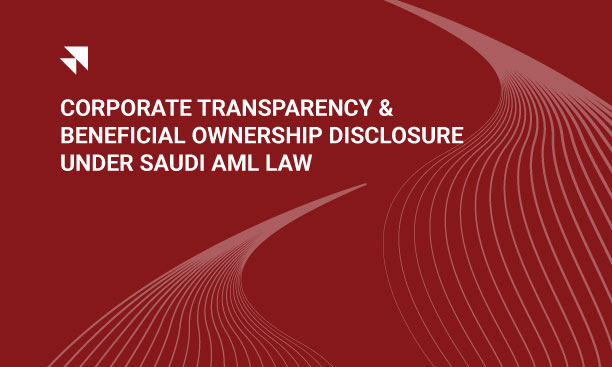The Saudi Labor Law exists as an authority administered through the Ministry of Human Resources and Social Development to control all work-related ties throughout Saudi Arabia. All conditions controlling termination by employers and employee resignation appear in clear terms through this legislation alongside rules regarding termination with or without notice periods.
Article 80 and Article 81 represent the two fundamental provisions that apply in these circumstances. The articles detail particular conditions of contract dissolution while protecting workers while preserving employer neutrality.
Parties who want to engage in labor contracts need to comprehend these particular articles. Failure to properly follow legal procedures during execution of termination or resignation can lead to legal consequences. This affects the process legitimacy.
Article 80 in Saudi Labor Law and Employer-Initiated Termination
According to Article 80 in Saudi Labor Law, an employer maintains the right to terminate contracts without giving employees pay or end-of-service benefits. This is applicable under specific circumstances.
Article 80 of Saudi Labor Law establishes different situations when an employer can end employment contracts without paying termination benefits:
- The employee breaches their duties seriously or is absent from work without proper reason.
- The employee shows both dishonest conduct and workplace misconduct.
- The employee assaults a colleague or supervisor.
- The investigation reveals that the employees used their work position to obtain personal benefits.
- Employees who fail to provide valid reasons for their absence must endure a particular duration (15 consecutive or 30 intermittent days in one year).
Each ground must be proven with appropriate documentation or evidence. Importantly, the employer cannot invoke Article 80 retroactively for previously tolerated behavior. Moreover, if the termination does not strictly conform to these provisions, the employer may be compelled to reinstate the employee. Alternatively, they may need to pay compensation.
Article 81 in Saudi Labor Law and the Right to Resign Without Notice
Article 81 in Saudi Labor Law provides the employee with the right to resign without notice if the employer violates specific contractual or legal duties. This article serves as a protective measure against employer abuse or unsafe working conditions. Grounds for immediate resignation include:
- The employer creates false circumstances at the time of signing employment agreements.
- The employer becomes accountable when he does not pay workers their wages properly.
- An assault or abusive conduct directed at the employee by their employer qualifies as one of the grounds for immediate resignation.
- Health and safety regulations breach by the employer endangers the employee’s well-being.
- A transfer of employee responsibility to an entirely different position against their voluntary agreement or contractual understanding constitutes grounds for immediate resignation.
When invoking Article 81, the employee must retain evidence of the breach, such as written complaints, unpaid wage records, or medical reports. If properly substantiated, resignation under this article does not incur penalties. The employee retains the right to end-of-service benefits.
Resignation and Termination During the Probation Period
The probation period extends for either three months or six months. This is based on contract terms during which the employer or employee can dissolve the agreement without paying any termination fees. Contractual employment can be ended by either party during the probation period. Although prior notification is typically needed, this requirement can be excluded in writing by both parties.
If an employee chooses to resign within the probation period without adhering to notice terms and no contractual clause provides otherwise, the employer may claim compensation for unjustified departure. Conversely, if the employer dismisses the employee during this period without explanation or fair process, legal action may still be pursued under general labor protections.
Financial Consequences of Early Resignation
Saudi Arabian labor laws establish that premature employee resignations during probation or without valid reasons can lead to complete loss of their end-of-service compensation benefits. The employee maintains eligibility for their end-of-service compensation benefit if they provide proper notice. This applies even if the resignation occurs outside the boundaries defined by Article 81, based on how long they worked.
For example, under current labor law:
- Any employee who serves between 2 and 5 years in the company becomes eligible for one-third pay of their end-of-service award.
- After 5–10 years, two-thirds.
- Full benefits apply after 10 years, unless resignation is unjustified.
Employer Obligations During the Resignation or Termination Process
Whether termination is initiated by the employer under Article 80, or the employee resigns under Article 81, procedural fairness must be observed. Employers are required to:
- Provide written notice or immediate grounds for termination.
- Issue a final settlement, including outstanding wages and entitlements.
- Deliver an experience certificate upon request.
Failure to fulfill these obligations can expose the employer to administrative penalties or civil claims.
Labor Market Reforms and Vision 2030 Alignment
Saudi Arabia’s labor framework continues to evolve in line with Vision 2030. The Ministry of Human Resources and Social Development (MHRSD) has launched digital platforms like Qiwa and Mudad to streamline contract registration, wage protection, and dispute resolution. These reforms strengthen transparency and compliance while enhancing employee rights. For foreign employees and companies, understanding Articles 80 and 81 within this modernized legal ecosystem is essential to avoid disputes and maintain lawful employment relationships in the Kingdom.
If you require legal assistance regarding Saudi labor law termination of contract and resignation, our experienced team at Hamad and Youssry Saleh Law Firm is ready to guide you. We handle every legal procedure with professionalism and confidentiality. Contact us today at info@ahysp.com.
FAQs
Yes. If mistreatment includes physical abuse, verbal harassment, or non-payment of wages, you may resign under Article 81 in Saudi Labor Law without notice. Documentation of the abuse is critical to validate your resignation and retain benefits.
Generally, no payment is required if resignation is allowed in your contract. However, if your contract includes a penalty clause or you resign without notice, your employer may request compensation, especially if costs were incurred due to your early departure.
Article 81 grants employees the right to resign without notice if the employer violates the employment contract or legal obligations, such as delayed salary payments or unsafe work conditions.
Article 80 outlines cases where an employer may dismiss an employee without compensation due to serious misconduct, dishonesty, or repeated absences. Legal documentation is required to invoke this article.
Although not always required, it is strongly recommended that resignation be submitted in writing to avoid disputes regarding the date or voluntariness of the resignation.
No. If the resignation is legally justified under Article 81, the employee remains entitled to full end-of-service benefits unless there is a proven breach by the employee.
Only written contracts and official documentation are legally recognized in most cases. Verbal agreements are difficult to enforce unless corroborated by credible evidence or witnesses.






